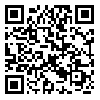Volume 42, Issue 3 (9-2018)
Research in Medicine 2018, 42(3): 131-136 |
Back to browse issues page
Download citation:
BibTeX | RIS | EndNote | Medlars | ProCite | Reference Manager | RefWorks
Send citation to:



BibTeX | RIS | EndNote | Medlars | ProCite | Reference Manager | RefWorks
Send citation to:
motabar roodi M, Tehranipour M, amintaheri N. The Effects of aqueous extracts of millet (Panicum miliaceum L.) on spatial memory density in male mouse. Research in Medicine 2018; 42 (3) :131-136
URL: http://pejouhesh.sbmu.ac.ir/article-1-1820-en.html
URL: http://pejouhesh.sbmu.ac.ir/article-1-1820-en.html
Islamic Azad University, Mashhad Branch, Mashhad, Iran , maryam_tehranipour@mshdiau.ac.ir
Abstract: (3658 Views)
Background and Objective:
One of the characteristics of human is their ability to change behavior based on previous experiences. Learning is the acquisition of information that makes this possible, and memory is meant to store this information. Millet contains proteins, minerals, vitamins and antioxidants needed to preserve the life and health of mammalian cells. This study was conducted to determine the effect of aqueous extract of seed of millet (Panicum miliaceum L.) on spatial memory.
Materials and Methods: In this experimental study, 24 male rats were divided into 4 groups. Hydrochloric extract of Prossu millet was prepared by Soxhlet method and injected into three treatment groups with doses of 25, 50 and 75 mg/kg by intraperitoneal injection for 21 days. The control group received normal saline. After one month from the first injection, learning behaviors and memory tests were performed on samples. In this study, a Mauritius Water Maze was used to study the space memory and a shuttle box was used to learn passive avoidance of spatial memory. One-way variance (ANOVA) was used to analyze the data of variance analysis with repeated measurements and to analyze memory data.
Results: In the injection of aqueous extracts with doses of (25, 50 and 75 mg/kg), time for finding the platform between the control group and the aqueous treatments in doses of (50 and 75 mg / kg) was significantly different. (p <0.05). Also, time of training and test time in control and treatment groups receiving aqueous extract showed a significant difference, indicating that this extract had a significant effect.
Conclusion: Hydrous extracts of millet grain of Prossu could improve the learning and spatial memory of male mice, which may be due to the antioxidant properties of millet.
One of the characteristics of human is their ability to change behavior based on previous experiences. Learning is the acquisition of information that makes this possible, and memory is meant to store this information. Millet contains proteins, minerals, vitamins and antioxidants needed to preserve the life and health of mammalian cells. This study was conducted to determine the effect of aqueous extract of seed of millet (Panicum miliaceum L.) on spatial memory.
Materials and Methods: In this experimental study, 24 male rats were divided into 4 groups. Hydrochloric extract of Prossu millet was prepared by Soxhlet method and injected into three treatment groups with doses of 25, 50 and 75 mg/kg by intraperitoneal injection for 21 days. The control group received normal saline. After one month from the first injection, learning behaviors and memory tests were performed on samples. In this study, a Mauritius Water Maze was used to study the space memory and a shuttle box was used to learn passive avoidance of spatial memory. One-way variance (ANOVA) was used to analyze the data of variance analysis with repeated measurements and to analyze memory data.
Results: In the injection of aqueous extracts with doses of (25, 50 and 75 mg/kg), time for finding the platform between the control group and the aqueous treatments in doses of (50 and 75 mg / kg) was significantly different. (p <0.05). Also, time of training and test time in control and treatment groups receiving aqueous extract showed a significant difference, indicating that this extract had a significant effect.
Conclusion: Hydrous extracts of millet grain of Prossu could improve the learning and spatial memory of male mice, which may be due to the antioxidant properties of millet.
Type of Study: Original |
Subject:
Physilogy
Received: 2017/11/8 | Accepted: 2018/06/30 | Published: 2018/10/1
Received: 2017/11/8 | Accepted: 2018/06/30 | Published: 2018/10/1
Send email to the article author
| Rights and permissions | |
 |
This work is licensed under a Creative Commons Attribution-NonCommercial 4.0 International License. |






